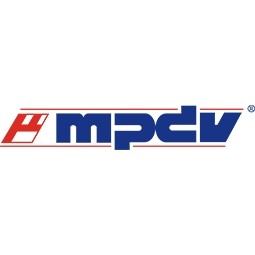Customer Company Size
Large Corporate
Region
- Europe
- America
Country
- Germany
- Poland
- United States
Product
- HYDRA by MPDV
- Microsoft Dynamics AX
Tech Stack
- Windows Server
- Microsoft SQL Database
Implementation Scale
- Enterprise-wide Deployment
Impact Metrics
- Productivity Improvements
- Customer Satisfaction
Technology Category
- Functional Applications - Manufacturing Execution Systems (MES)
Applicable Industries
- Equipment & Machinery
Applicable Functions
- Process Manufacturing
- Quality Assurance
Use Cases
- Manufacturing System Automation
- Predictive Maintenance
- Process Control & Optimization
Services
- System Integration
- Training
About The Customer
WIKA Alexander Wiegand SE & Co. KG is a globally recognized leader in pressure and temperature measurement, operating as a family-run business with over 9,300 highly qualified employees. Founded in 1946, WIKA has established itself as a reliable partner in industrial measurement technology, offering a broad portfolio of high-precision instruments and comprehensive services. The company is known for its flexibility and high delivery performance, with manufacturing locations worldwide. Annually, WIKA delivers over 50 million quality products, ranging from standard to customer-specific solutions, in batches of 1 to over 10,000 units. With numerous wholly-owned subsidiaries and partners, WIKA supports its customers worldwide, ensuring competence and reliability in its services.
The Challenge
WIKA faced the challenge of maintaining efficiency and productivity amidst increasing product variety in their pre-fabrication processes. The company needed a solution to optimize production control and standardize controlling and reporting. The introduction of a Manufacturing Execution System (MES) was advised by a lean consultant to address these challenges. The main reason for selecting the MES solution HYDRA by MPDV was its broad range of standardized modules that could handle various tasks. Additionally, the mindset of the MES experts from MPDV and their international experience were appreciated by WIKA. The company expected the MES system to provide reliable order and machine data, which would benefit production control and improve planning, thus compensating for any delays in production.
The Solution
WIKA implemented the HYDRA Manufacturing Execution System (MES) by MPDV to address their production challenges. The MES solution was chosen for its comprehensive range of standardized modules that could handle various tasks, aligning with WIKA's needs. The system facilitated the collection of reliable order and machine data, enhancing production control and planning. The integration of quality management with modules for In-Production Inspection and Test Equipment Management allowed for setting inspections according to different working steps. This enabled straightforward operator self-inspection directly at the machine, supported by more elaborate analyses from the quality lab if necessary. The uniform user interface of the HYDRA Shop Floor Client simplified operations for production staff, as they only needed to learn one system. The introduction of HYDRA took approximately six months, including training key users. By 2013, WIKA successfully switched to the current HYDRA 8 version, and the solution was rolled out to further sites in Germany, Poland, and the USA.
Operational Impact
Quantitative Benefit

Case Study missing?
Start adding your own!
Register with your work email and create a new case study profile for your business.
Related Case Studies.

Case Study
Smart Water Filtration Systems
Before working with Ayla Networks, Ozner was already using cloud connectivity to identify and solve water-filtration system malfunctions as well as to monitor filter cartridges for replacements.But, in June 2015, Ozner executives talked with Ayla about how the company might further improve its water systems with IoT technology. They liked what they heard from Ayla, but the executives needed to be sure that Ayla’s Agile IoT Platform provided the security and reliability Ozner required.

Case Study
IoT enabled Fleet Management with MindSphere
In view of growing competition, Gämmerler had a strong need to remain competitive via process optimization, reliability and gentle handling of printed products, even at highest press speeds. In addition, a digitalization initiative also included developing a key differentiation via data-driven services offers.

Case Study
Predictive Maintenance for Industrial Chillers
For global leaders in the industrial chiller manufacturing, reliability of the entire production process is of the utmost importance. Chillers are refrigeration systems that produce ice water to provide cooling for a process or industrial application. One of those leaders sought a way to respond to asset performance issues, even before they occur. The intelligence to guarantee maximum reliability of cooling devices is embedded (pre-alarming). A pre-alarming phase means that the cooling device still works, but symptoms may appear, telling manufacturers that a failure is likely to occur in the near future. Chillers who are not internet connected at that moment, provide little insight in this pre-alarming phase.

Case Study
Premium Appliance Producer Innovates with Internet of Everything
Sub-Zero faced the largest product launch in the company’s history:It wanted to launch 60 new products as scheduled while simultaneously opening a new “greenfield” production facility, yet still adhering to stringent quality requirements and manage issues from new supply-chain partners. A the same time, it wanted to increase staff productivity time and collaboration while reducing travel and costs.

Case Study
Integration of PLC with IoT for Bosch Rexroth
The application arises from the need to monitor and anticipate the problems of one or more machines managed by a PLC. These problems, often resulting from the accumulation over time of small discrepancies, require, when they occur, ex post technical operations maintenance.

Case Study
Data Gathering Solution for Joy Global
Joy Global's existing business processes required customers to work through an unstable legacy system to collect mass volumes of data. With inadequate processes and tools, field level analytics were not sufficient to properly inform business decisions.







